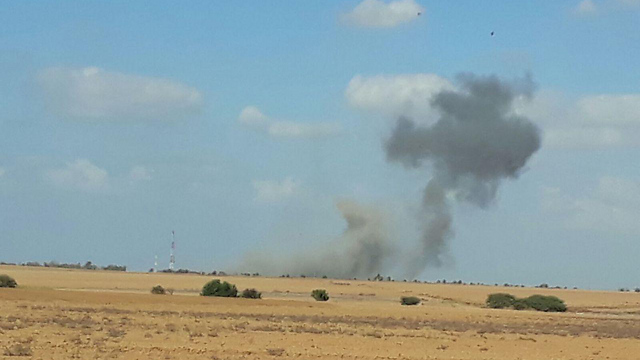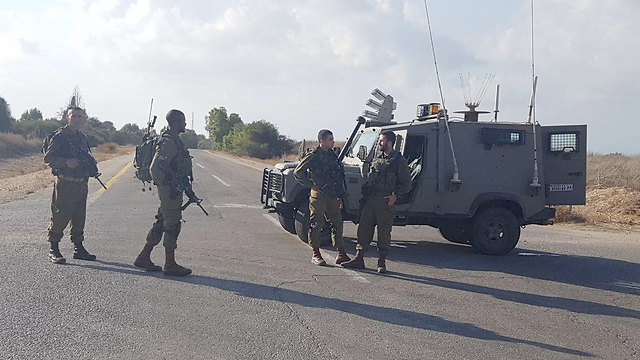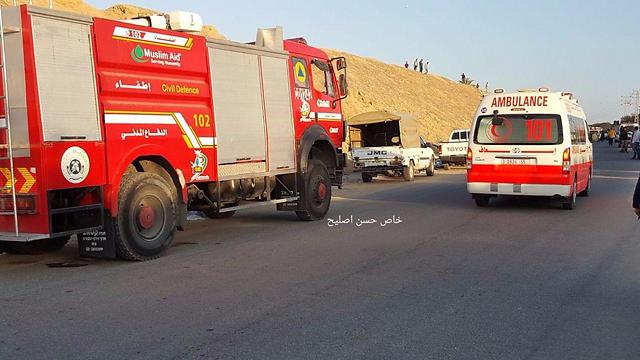
Tunnel explosion as seen from Gaza
Tunnel explosion timing affected by Gaza political situation
Analysis: The IDF kept track of the offensive tunnel that was exploded Monday for a long time, but didn’t take any measures to destroy it before finding a suitable time, which wasn’t only the result of operational considerations. Israel likely chose to bomb the tunnel at this time as the political conditions in Gaza reduce the chance of a response through rocket fire.
The controlled explosion of an offensive tunnel infiltrating Israel from the southern Gaza Strip indicates that the tunnel-detection systems developed by the defense establishment have now reached a certain level of maturity.
Senior defense establishment officials are still of the strong opinion that these technologies have yet to reach full maturity and are not one-hundred percent reliable and efficient yet, but we are definitely seeing results—and more than once.
The IDF had been keeping track of the tunnel that was exploded Monday for a long time, but had not taken any measures to destroy it before finding a suitable operational time. This points to a considerable growth in the IDF’s self-confidence in its war on the Gazan offensive tunnels, and in the underground arena in general.
The tunnel destruction method indicates that the IDF possesses diverse abilities to accurately locate the tunnels’ route and destroy them in a controlled manner, using different means. These abilities are important because they didn’t exist during Operation Protective Edge, which was one of the primary reasons the operation lasted more than 50 days. The slow progress in demolishing the tunnels prevented the IDF from leaving the Gaza Strip earlier.
It’s more than likely that the timing of the tunnel explosion wasn’t random and wasn’t just the result of operational considerations. There’s hardly any doubt that Israel chose to bomb the tunnel at this time because the political conditions in Gaza reduces the chance that Hamas or the Islamic Jihad will respond by firing rockets into Israel.
Iron Dome batteries were placed in the Gaza vicinity area just in case, but the assumption among defense establishment officials is that Hamas isn’t interested in a military escalation at the moment, as it seeks to improve its relations with Egypt and score points with Palestinian public opinion during the reconciliation process. Furthermore, the strip’s distressed residents won’t accept another round of fighting at this time.
For these reasons, Israel likely considered itself free to carry out the controlled explosion. There was no need for international legitimization, as the tunnel had already infiltrated Israeli territory and blatantly violated the ceasefire agreements and, most importantly, Israeli sovereignty.
The tunnel explosion was also aimed at conveying the following message to Hamas: “Stop with these tunnels. We see you, and we’ll soon see you even better while you dig. So why waste money and put lives at risk?”
This message is directed at Hamas leader in Gaza, Yahya Sinwar, and at the head of Hamas’ military wing, Mohammed Deif, in a bid to make them recalculate their route above and below the ground.













